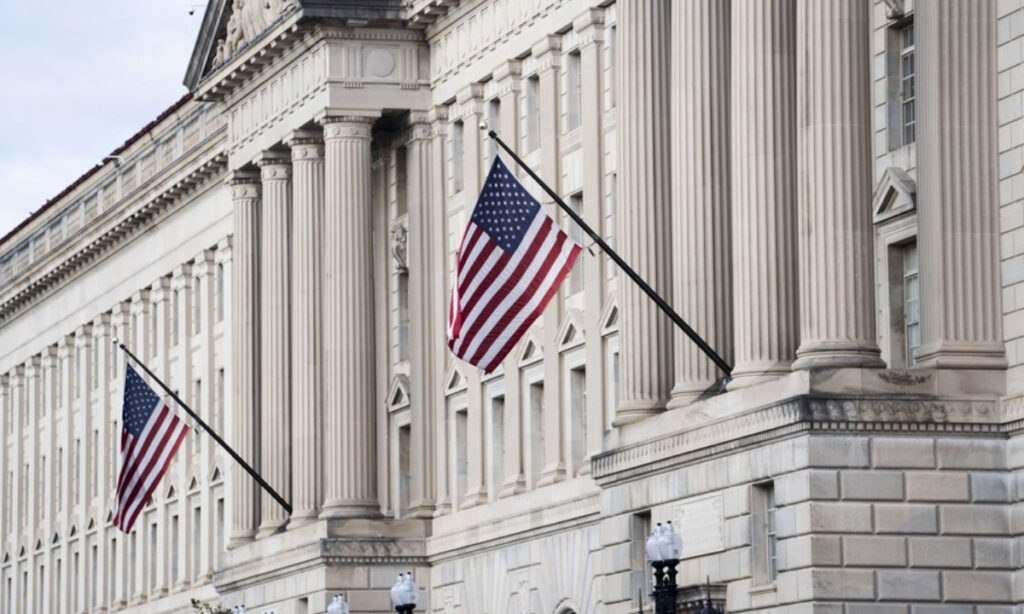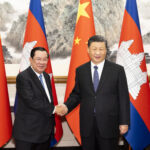Despite China’s repeated communication with the US, Washington continued to escalate its response to the airship incident through a mix of both political and economic moves, due to the malicious political manipulation by some forces in Washington, which presents worrying signs for bilateral ties, experts warned on Saturday.
The Biden administration on Friday blacklisted six Chinese aviation and technology companies as part of its continuing response to a Chinese civilian airship, according to media reports.
The US Commerce Department said the five companies and one research institute were supporting “China’s military modernization efforts, specifically the People’s Liberation Army’s (PLA) aerospace programs including airships and balloons.”
The six entities are Beijing Nanjiang Aerospace Technology Co, China Electronics Technology Group Corporation 48th Research Institute, Dongguan Lingkong Remote Sensing Technology Co, Eagles Men Aviation Science and Technology Group Co, Guangzhou Tian-Hai-Xiang Aviation Technology Co, and Shanxi Eagles Men Aviation Science and Technology Group Co.
US Deputy Secretary of Commerce Don Graves said on Twitter his department “will not hesitate to continue to use” such restrictions and other regulatory and enforcement tools “to protect US national security and sovereignty.”
Also on Friday, Reuters reported that the Biden administration plans to outright ban investments in some Chinese technology companies and increase scrutiny of others, so as to crack down on the billions of dollars of US investment in sensitive Chinese sectors.
On Thursday, the US House of Representatives also passed a resolution condemning China for using a surveillance balloon over US territory.
Chinese Foreign Ministry spokesperson Mao Ning said on Friday that “the Chinese side has repeatedly shared information and stated its position on the unintended entry of the unmanned Chinese civilian airship into US airspace due to force majeure. The US Congress’s resolution is purely about scoring political points and dramatizing the whole thing. China deplores it and firmly opposes it.”
Washington’s escalation and expanding of the political implications of the airship incident is a sign that US economic and foreign policy has been completely hijacked by its domestic political chaos, which is having economic consequences not only on the two countries, but also on global industrial chains, experts noted.
He Weiwen, a former senior trade official and an executive council member of the China Society for World Trade Organization Studies, told the Global Times on Saturday that the airship incident has given the US yet another excuse to abuse export controls targeting Chinese businesses, and given the US-led “decoupling” push, it won’t be surprising if more high-tech companies are affected by such restrictions in the future.
The past months already saw the US ramp up efforts to strangle China on advanced technology, including a decision to cease approval licenses for US firms to export most items to Chinese technology giant Huawei and coercing the Netherlands and Japan to join the US in limiting exports of advanced chipmaking equipment to China.
“Both the US’ technological suppression and its escalation of the airship incident actually point to a core problem, that is, the current atmosphere for US-China relations is worrying,” Gao Lingyun, an expert at the Chinese Academy of Social Sciences in Beijing, told the Global Times on Saturday. “Some political forces are trying to exploit the tension between China and the US for their own political gain, and this is something to watch out for.”
But even in such circumstances, it is still essential for China and the US to manage differences and strengthen communication and cooperation for the sake of a stable bilateral relationship, which is vital to both economies, He said. The US economy is now under broad pressure from inflation, a looming recession and an unfolding debt crisis. A sound economic relationship with China will greatly help alleviate this pressure.
While the Biden administration has decided to postpone Blinken’s reported trip to Beijing following the airship incident, US Treasury Secretary Janet Yellen still said that she still hoped to visit China, according to US media reports. And China’s Ministry of Commerce said on Thursday that China welcomes Yellen to visit China, as it is important for both countries to maintain normal communication.
(Global Times)




